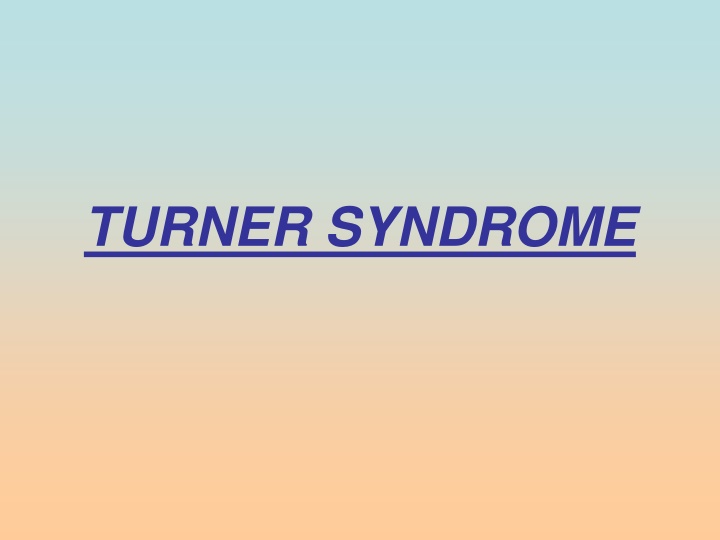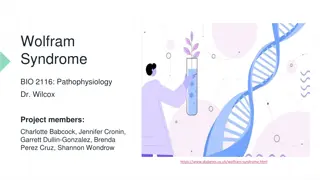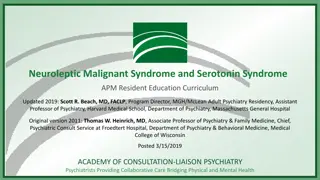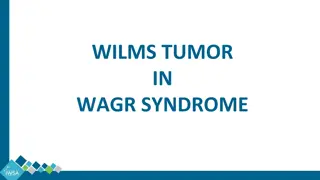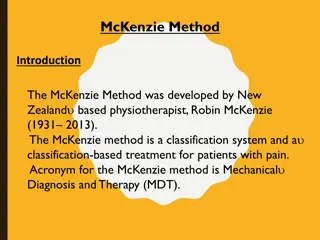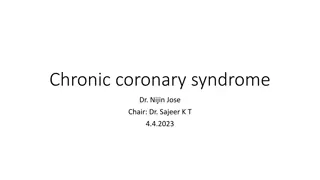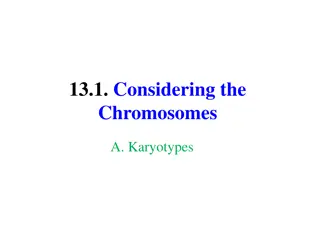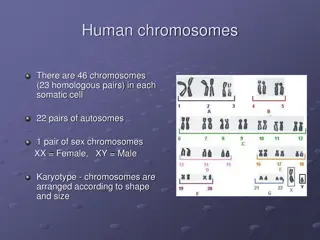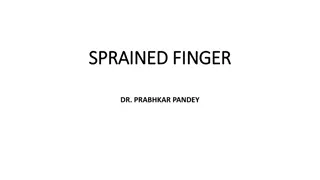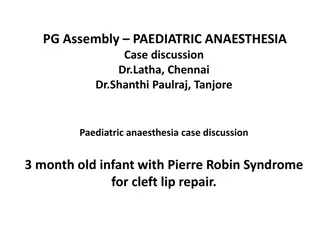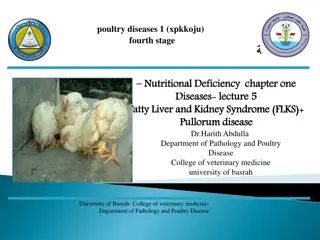Turner Syndrome - Causes, Symptoms, Diagnosis & Treatment
Turner Syndrome is a relatively common genetic disorder that affects only females. It is characterized by short stature, ovarian dysfunction, hormonal imbalances, and various associated health issues. Diagnosis can be made through physical examination and karyotyping. Treatment options include growth hormone therapy, estrogen replacement therapy, cardiac surgery if necessary, and psychological support. While Turner Syndrome is a genetic disorder, it is not usually hereditary and there are no known environmental causes.
Download Presentation

Please find below an Image/Link to download the presentation.
The content on the website is provided AS IS for your information and personal use only. It may not be sold, licensed, or shared on other websites without obtaining consent from the author.If you encounter any issues during the download, it is possible that the publisher has removed the file from their server.
You are allowed to download the files provided on this website for personal or commercial use, subject to the condition that they are used lawfully. All files are the property of their respective owners.
The content on the website is provided AS IS for your information and personal use only. It may not be sold, licensed, or shared on other websites without obtaining consent from the author.
E N D
Presentation Transcript
What is Turner Syndrome? Relatively common disorder caused by the loss of genetic material from one of the sex chromosomes. Affects only females
Clinical features Short stature (143-145cm tall) Loss of ovarian function Hormone imbalances( thyroid, diabetes) Stress and emotional deprivation Diseases affecting the kidneys, heart, lungs or intestines Bone diseases Learning problems( esp. in maths)
Genetic causes X chromosome monosomy X chromosome mosaicism X chromosome defects
Diagnosis Possible during infancy or early childhood A physical exam is the first indication The best test is a karyotype, ie a laboratory test presenting the chromosomes
Treatment Growth hormone therapy Estrogen replacement therapy Cardiac surgery (when needed) In vitro fertilization (to achieve pregnancy) Psychological help
Is Turner Syndrome hereditary? Although genetic disorder, it is not usually hereditary There are no known environmental causes of the syndrome Women with Turner Syndrome are usually infertile it is a
